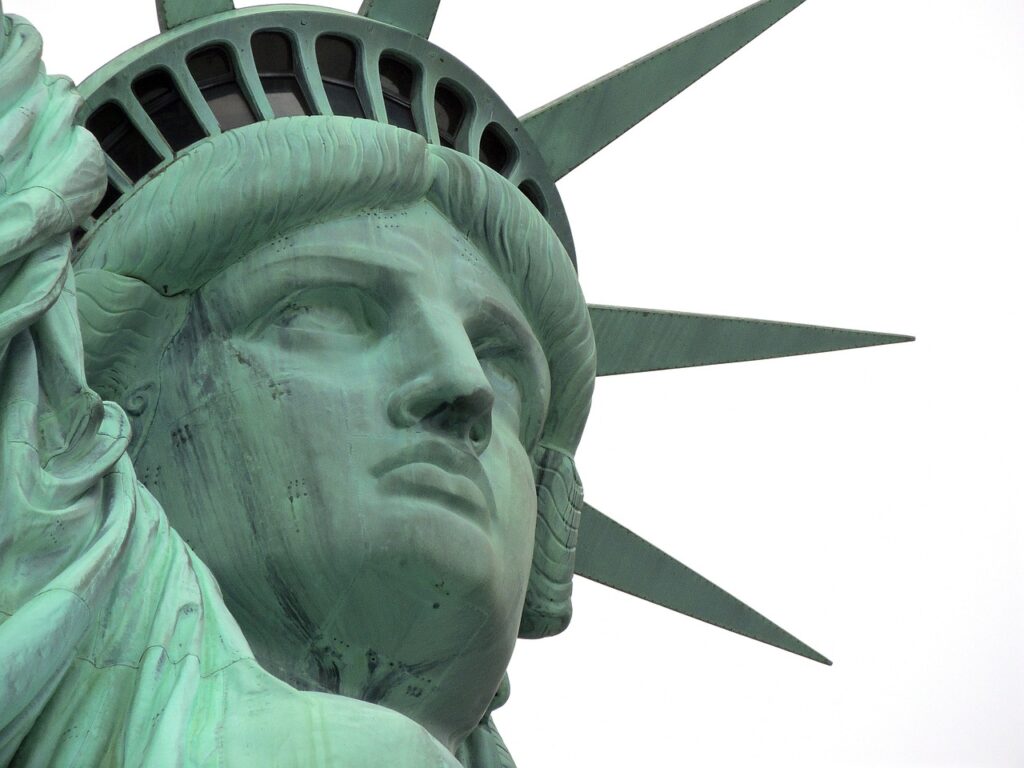The History of United States of America

The history of the United States is a complex narrative shaped by diverse cultures, events, and individuals. Here’s a broad overview of key milestones and periods in U.S. history:-

Pre-Columbian Era: Before the arrival of European settlers, various Native American civilizations thrived across the continent. These societies had diverse cultures, languages, and traditions.
European Exploration and Colonization (15th–17th centuries): In the late 15th century, Christopher Columbus’s voyages marked the beginning of European exploration. Subsequent explorers like Hernán Cortés and Jacques Cartier claimed territories in the Americas for Spain and France. The first permanent English settlement, Jamestown, was established in 1607.
The Thirteen Colonies (17th–18th centuries): The 13 British colonies along the eastern seaboard grew, developing distinct regional economies and cultures. Discontent with British rule led to events such as the Boston Tea Party and the signing of the Declaration of Independence in 1776.
American Revolution (1775–1783): The Thirteen Colonies fought for independence from British rule. The conflict culminated in the Treaty of Paris in 1783, recognizing the United States as a sovereign nation.
Formation of the U.S. Constitution (1787): The Constitutional Convention in Philadelphia led to the drafting of the U.S. Constitution, which established the framework for the federal government. The Bill of Rights, the first ten amendments, was added in 1791.
Westward Expansion (early 19th century): The U.S. expanded westward, acquiring new territories through treaties, purchases, and westward migrations. The Lewis and Clark expedition (1804–1806) explored the newly acquired Louisiana Purchase.

Civil War and Reconstruction (1861–1865): Tensions over slavery escalated, leading to the American Civil War between the Northern states (Union) and the Southern states (Confederacy). The Union’s victory in 1865 led to the abolition of slavery. Reconstruction efforts aimed to rebuild the South.
Industrialization and Gilded Age (late 19th century): The U.S. experienced rapid industrialization, urbanization, and economic growth. The period was marked by technological advancements, but also social inequality and labor struggles.
Progressive Era (early 20th century): Reforms addressing social issues, women’s suffrage, and labor rights characterized the Progressive Era. The 19th Amendment, granting women the right to vote, was ratified in 1920.
World War I and Interwar Period (1917–1941): The U.S. entered World War I in 1917 and emerged as a global power. The Roaring Twenties saw cultural and economic dynamism, followed by the Great Depression in the 1930s.
World War II (1941–1945): The U.S. entered World War II after the attack on Pearl Harbor. The war had profound effects on the global order, and the U.S. emerged as a superpower.
Cold War Era (1945–1991): The ideological rivalry between the U.S. and the Soviet Union defined international relations during the Cold War. The Cuban Missile Crisis and the Space Race were key events.
Civil Rights Movement (1950s–1960s): Advocates for civil rights pushed for an end to racial segregation and discrimination. Landmark legislation, including the Civil Rights Act of 1964 and the Voting Rights Act of 1965, sought to address inequalities.
Vietnam War (1955–1975): The U.S. became involved in the Vietnam War, a conflict that stirred domestic opposition and had lasting impacts on U.S. foreign policy.
Contemporary Period (1970s–present): Recent decades have seen significant social, political, and technological changes. Key events include the end of the Cold War, the rise of the internet, the 9/11 attacks, and ongoing debates about issues such as immigration, healthcare, and climate change.
The history of the United States is intricate and multifaceted, shaped by a multitude of influences and experiences. This overview provides a snapshot of major developments across centuries, but a deeper exploration of each era reveals a richer narrative.








